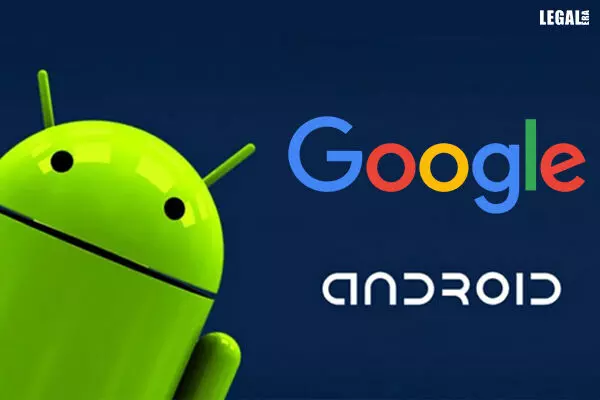- Home
- News
- Articles+
- Aerospace
- Agriculture
- Alternate Dispute Resolution
- Banking and Finance
- Bankruptcy
- Book Review
- Bribery & Corruption
- Commercial Litigation
- Competition Law
- Conference Reports
- Consumer Products
- Contract
- Corporate Governance
- Corporate Law
- Covid-19
- Cryptocurrency
- Cybersecurity
- Data Protection
- Defence
- Digital Economy
- E-commerce
- Employment Law
- Energy and Natural Resources
- Entertainment and Sports Law
- Environmental Law
- FDI
- Food and Beverage
- Health Care
- IBC Diaries
- Insurance Law
- Intellectual Property
- International Law
- Know the Law
- Labour Laws
- Litigation
- Litigation Funding
- Manufacturing
- Mergers & Acquisitions
- NFTs
- Privacy
- Private Equity
- Project Finance
- Real Estate
- Risk and Compliance
- Technology Media and Telecom
- Tributes
- Zoom In
- Take On Board
- In Focus
- Law & Policy and Regulation
- IP & Tech Era
- Viewpoint
- Arbitration & Mediation
- Tax
- Student Corner
- AI
- ESG
- Gaming
- Inclusion & Diversity
- Law Firms
- In-House
- Rankings
- E-Magazine
- Legal Era TV
- Events
- News
- Articles
- Aerospace
- Agriculture
- Alternate Dispute Resolution
- Banking and Finance
- Bankruptcy
- Book Review
- Bribery & Corruption
- Commercial Litigation
- Competition Law
- Conference Reports
- Consumer Products
- Contract
- Corporate Governance
- Corporate Law
- Covid-19
- Cryptocurrency
- Cybersecurity
- Data Protection
- Defence
- Digital Economy
- E-commerce
- Employment Law
- Energy and Natural Resources
- Entertainment and Sports Law
- Environmental Law
- FDI
- Food and Beverage
- Health Care
- IBC Diaries
- Insurance Law
- Intellectual Property
- International Law
- Know the Law
- Labour Laws
- Litigation
- Litigation Funding
- Manufacturing
- Mergers & Acquisitions
- NFTs
- Privacy
- Private Equity
- Project Finance
- Real Estate
- Risk and Compliance
- Technology Media and Telecom
- Tributes
- Zoom In
- Take On Board
- In Focus
- Law & Policy and Regulation
- IP & Tech Era
- Viewpoint
- Arbitration & Mediation
- Tax
- Student Corner
- AI
- ESG
- Gaming
- Inclusion & Diversity
- Law Firms
- In-House
- Rankings
- E-Magazine
- Legal Era TV
- Events
Google notifies NCLAT on CCI penalty being unreasonable

Google notifies NCLAT on CCI penalty being unreasonable
The Tech giant said the competition watchdog arrived at a conclusion without questioning the users
Google has informed the National Company Law Appellate Tribunal (NCLAT) that the Competition Commission of India (CCI) order imposing a fine of Rs.1,337.76 crore on it for allegedly misusing its dominant position in the Android ecosystem is unreasonable.
Appearing for Google, senior advocate Arun Kathpalia said that CCI's order on Google allegedly using its dominant position in the Android ecosystem to push Google Chrome, was without any inquiry or analysis. He said that the Commission made conclusions without posing the question to the users.
Kathpalia argued, "CCI says that Google apps can only be disabled. The question then is how much additional space the uninstallation will free, and if disabling slows up the device. There is not an iota of finding on this. There is no inquiry or analysis on whether this has any effect on running of the device."
The NCLAT bench of Justice Ashok Bhushan (chairperson) and Dr. Alok Srivastava, (technical member) was hearing submissions in Google's challenge to the CCI order passed in October last.
Earlier, the tribunal refused to grant interim relief to the tech giant. The matter then reached the Supreme Court, which also denied relief to Google. Since then, NCLAT has been hearing the appeal on a day-to-day basis.
Kathpalia stated that CCI recognized that Google's Mobile Application Distribution Agreement (MADA) was beneficial to Original Equipment Manufacturers (OEMs). So, there was no imposition of unfair terms. OEMs were free to install any other browser on the system. Also, till 2020 (unlike in Apple devices), Google Chrome was not mandatorily the default browser on Android systems.
He refuted the argument that Google posed any barriers to third-party browsers being installed on the Android system.
Citing the example of UC Browser, he said, "The charge against me is by pre-installing Google Chrome, I am ousting somebody. The ban was imposed on UC Browser in June 2020. In the first six months of that year, the app was downloaded over 104 million times. The figure is from Google Play Store. Can we even countenance that there is an exclusion on account of my MADA? None of this has been considered in the CCI order."
Meanwhile, apart from imposing a monetary penalty, the CCI ordered Google to cease and desist from participating in anti-competitive practices. Google was directed to modify its conduct within a defined timeline.
The Commission examined various practices of Google in relation to licensing of the Android mobile operating system and several of its mobile applications including the Play Store, Google Search, Google Chrome, and YouTube. The Commission found Google to be dominant in all relevant markets.
While underlying the objective of Google in imposing various restrictions, the competition watchdog said, "By virtue of the agreements, Google ensured that users continue to use its search services on mobile devices, which facilitated uninterrupted growth of advertisement revenue for Google."
CCI added that the markets should be allowed to compete on merits. The onus was on the dominant player to show its conduct did not impinge competition.



